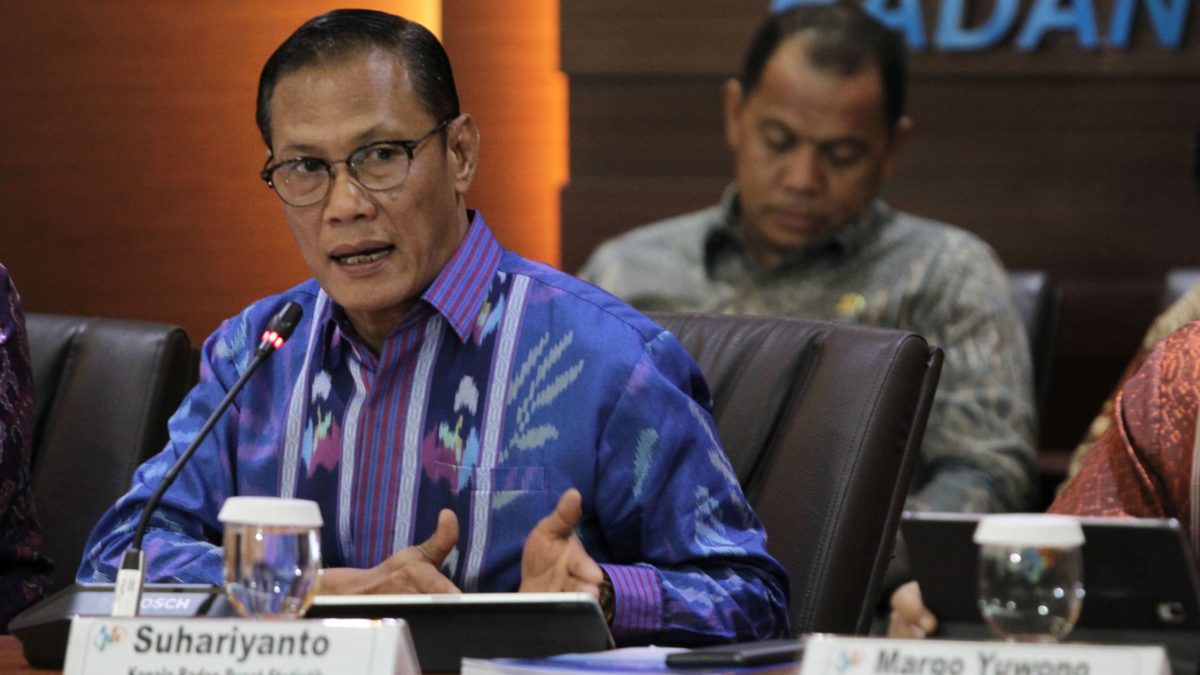JAKARTA- Indonesia’s gross domestic product fell slightly more than expected in the fourth quarter and suffered its first full-year contraction in over two decades in 2020 as Southeast Asia’s largest economy grappled with the COVID-19 pandemic.
GDP shrank 2.19% on an annual basis in October-December, the statistics bureau data showed on Friday, faster than the 2% contraction expected in a Reuters poll, but less than the 3.49% slump in the previous quarter.
Indonesia’s main stock index erased earlier gains after the announcement, having traded up as much as 0.7% before.
“All sectors of spending in 2020 still posted contractions, except for the government spending … but generally, not as deep as in Q3 or Q2, which indicates improvements,” the head of the statistics bureau Suhariyanto, who only goes by one name, told a virtual news conference.
Indonesia’s economy fell into recession last year as the country struggled to get its COVID-19 outbreak under control. It has the highest caseload and death toll from the respiratory disease in Southeast Asia.
For 2020, GDP fell 2.07% from a year earlier, the first full-year contraction since the 1998 Asian financial crisis, after growing 5% in 2019. That was slightly larger than the 2% contraction in a poll of analyst forecasts, and roughly in the middle of the government’s forecast range for a 1.7%-2.2% fall.
The government is targetting 5% growth this year on hopes that its vaccination programme, which kicked off in January, will boost business sentiment and an economic recovery.
“The economy is counting on a vaccine pivot this year to allow normalisation to gain a foothold,” said Radhika Rao, a senior economist at DBS, adding that Indonesia’s coronavirus curve had not stabilised.
The data on Friday showed household consumption shrank more slowly in the fourth quarter, contracting 3.6% after a 4.1% slump in the previous three months. Suhariyanto said the temporary easing of restrictions at the end of last year had increased restaurant food sales.
Household consumption represents more than half of GDP.
Jakarta imposed a second round of coronavirus curbs between September and October. The restrictions were reinstated last month due to a spike in cases.
Investment fell 6.2% after 6.5% drop in the previous quarter. Government spending was up just 1.8%, well below the previous quarter’s 9.8% growth.
Suhariyanto said a pick-up in manufacturing and exports could help drive economic growth at the beginning of 2021.
DBS’s Rao also said the economy would benefit from a stronger net exports balance helped by a commodity price upcycle, returning capital inflows, and the government’s decision to scale up stimulus spending this year.
Finance Minister Sri Mulyani Indrawati said this week she would boost fiscal support for the economy in 2021 to nearly match the 692.5 trillion rupiah ($49.39 billion) the government allocated for pandemic relief programmes last year.
Bank Indonesia, which delivered 125 basis points of rate cuts last year and pumped $50 billion of liquidity into financial markets, has promised to use all policy instruments to support the economic recovery in 2021.

